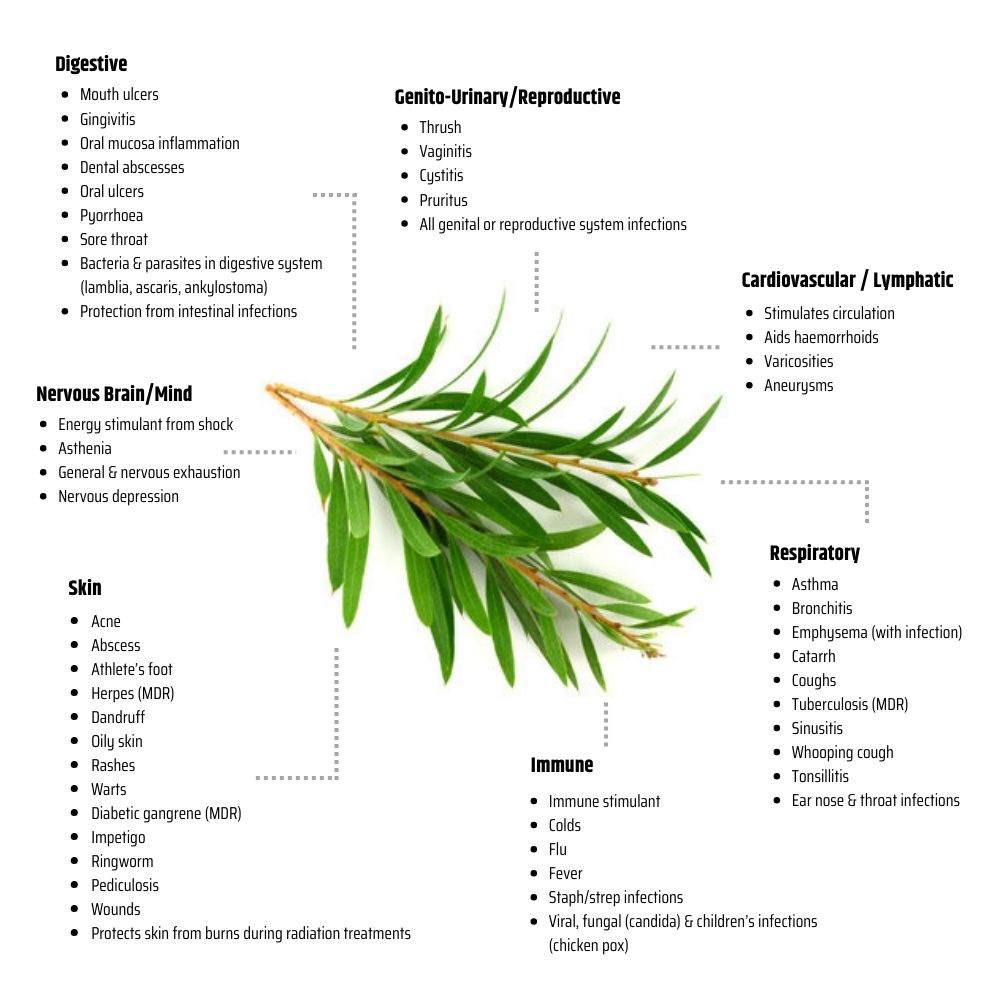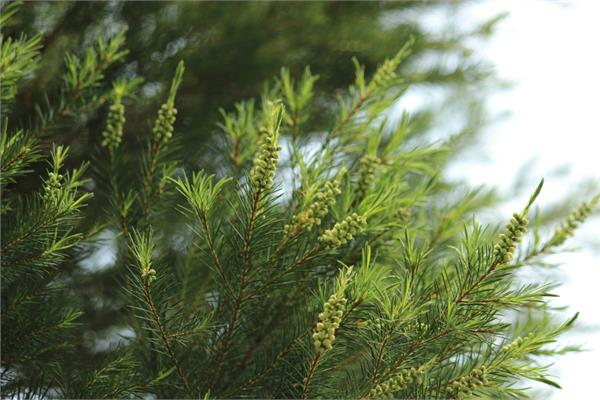
Australian Owned and Operated We have been proudly running for over 30 years

100% Pure & Natural Our products are sourced from the highest quality suppliers and growers from around the world

Not Tested on Animals None of our products are tested on animals

Vegan Friendly Our products are plant based and vegan friendly
Tea Tree
Melaleuca-1-terpinen-4-ol type
Source: Leaves
Origin: Australia
Energetics: Yang
Extraction Method: Steam Distilled
Scent: Fresh, medicinal, and herbaceous, with invigorating notes that evoke a sense of cleanliness and vitality.
Blends Well With: Floral, spice, aphrodisiac and other medicinal oil blends.
About
Many are fond of this medicinal oil and consider it a must-have as it offers a wide array of benefits. Tea Tree essential oil is well known for its many benefits, this oil may help you with oily skin, migraines, acne, chicken pox and athlete’s foot.
How To Use
Diffuse: Add a few drops to a diffuser to disperse around the room
Topically: Dilute essential oil with any carrier oil at a 2.5% ratio. This equates to 2.5ml essential oil/oils in total mixed with 100ml of chosen carrier oil. 1ml of essential oil is approximately 20-22 drops of oil. Decant into a roller or glass bottle with eye dropper to apply easily or a larger bottle if using for massage. Please note this dilution rate is for adults and children over the age of 6. More information on children and essential oils is on our blog page. Essential Oils should not be used directly on the skin without mixing first with a carrier oil
Inhalation: Add 1-2 drops essential oil to a tissue and inhale at a distance while ensuring that the oil does not come into direct contact with the skin. Alternatively, you can smell the oil directly from the bottle.
Shelf Life
Our freshly decanted Tea Tree essential oil will last for 2-3 years minimum from when you open your amber glass bottle if stored correctly.
Primary Storage Considerations: Keep away from direct light (U.V. radiation). Keep in the amber glass bottle with lid tightly closed. Only open when you need to and decant into a smaller "working" amber glass bottle if possible (and label so you know what is in it). This is to reduce oxidation.
Secondary Storage Considerations: Keep in a refrigerator at around 4 degrees celsius.
Safety
General
Some essential oils may cause photosensitivity to the skin - Use diluted in Jojoba or other complete carrier oil.
Do not ingest essential oils.
Do not apply to eyes, sensitive areas or mucous membranes.
The information on this website is not intended to be used in the diagnosis, treatment or mitigation of any physical or mental illness. Ahimsa Oils offer no advice or recommendations only general information. No therapeutic claims are made within.
Pregnant women, nursing mothers and children should not use essential oils without first consulting an appropriately trained healthcare practitioner.
The statements on this website have not been evaluated by the TGA. David Bosley however worked for a long period in consultation with the TGA to ensure correct labelling with reference to the Ahimsa Oil product range.
Specific
Hazards: Skin sensitization if oxidized
Cautions: Old or oxidized oils should be avoided.
Maximum dermal use: 15%
Whether for clinical use or in personal care products, a safe and effective concentration of unoxidized tea tree oil is likely to be in the 10-20% range. Therefore, we propose a 15% maximum. Oxidation of tea tree oil should be avoided by storage in a dark, airtight container in a refrigerator. The addition of an antioxidant to preparations containing it is recommended. Undiluted tea tree oil should not be used on the skin, because of the risk of sensitization.
For transportation purposes, this product is classed DG due to flash point of 56.6°C
References
Sheppard-Hanger, Sylla. The Aromatherapy Practitioner Reference Manual: Atlantic Institute of Aromatherapy, 1999. Print.
Tisserand, R., & Young, R. (2014). Essential Oil Safety: Second edition.



 Available for $100 orders and over
Available for $100 orders and over@PTHYS@360x240.jpg)

@PSAG@360x240.jpg)
@PLAVA@360x240.jpg)


